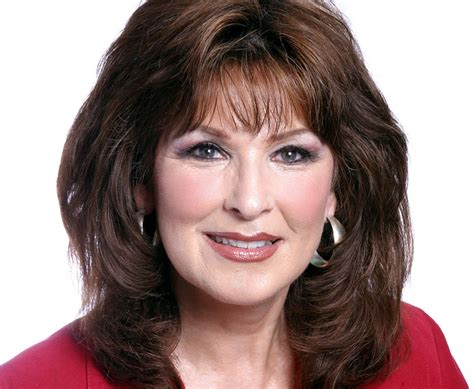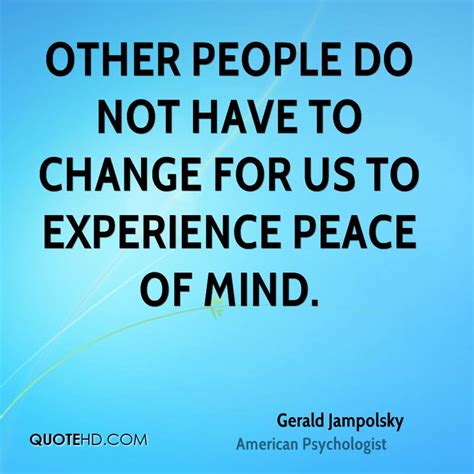A Quote by Stephen Covey
Only after we can learn to forgive ourselves can we accept others as they are because we don't feel threatened by anything about them which is better than us.
Related Quotes
We forgive, if we are wise, not for the other person, but for ourselves. We forgive, not to erase a wrong, but to relieve the residue of the wrong that is alive within us. We forgive because it is less painful than holding on to resentment. We forgive because without it we condemn ourselves to repeating endlessly the very trauma or situation that hurt us so. We forgive because ultimately it is the smartest action to take on our own behalf. We forgive because it restores to us a sense of inner balance.
Forgive yourself for believing things about yourself that are not true. Forgive yourself for believing that you were anything other than a child of God. Then, after forgiving yourself for believing the things you were told, forgive the people who told you. Forgive them not for what they said or did. Forgive them because they did not know any better.
The reason to forgive ourselves is not because we feel like it or because we want to see ourselves as blameless but because we limit what we can receive from God when we hold on to our past. He wants to do so much more than we could ever imagine. Forgiving yourself starts with believing in God's incredible love for you and accepting His amazing grace and mercy. If God Almighty can forgive us who are we to hold on to what He has not only forgiven but forgotten
If we have goals and dreams and we want to do our best, and if we love people and we don’t want to hurt them or lose them, we should feel pain when things go wrong. The point isn’t to live without any regrets, the point is to not hate ourselves for having them… We need to learn to love the flawed, imperfect things that we create, and to forgive ourselves for creating them. Regret doesn’t remind us that we did badly — it reminds us that we know we can do better.
You must learn to forgive yourself as easily as you forgive others. And then take a further step and use all that energy that you used in condemning yourself for improving yourself. After that I really started to get somewhere - because there's only one person you can change and that's yourself. After you have changed yourself, you might be able to inspire others to look for change.
The remarkable thing is that we really love our neighbor as ourselves: we do unto others as we do unto ourselves. We hate others when we hate ourselves. We are tolerant toward others when we tolerate ourselves. We forgive others when we forgive ourselves. We are prone to sacrifice others when we are ready to sacrifice ourselves.
God is good. He is eager to forgive. He wants us to perfect ourselves and maintain control of ourselves. He does not want Satan and others to control our lives. We must learn that keeping our Heavenly Father's commandments represents the only path to total control of ourselves, the only way to find joy, truth, and fulfillment in this life and in eternity.
Some of us can accept others right where they are a lot more easily than we can accept ourselves. We feel that compassion is reserved for someone else, and it never occurs to us to feel it for ourselves. My experience is that by practicing without 'shoulds,' we gradually discover our wakefulness and our confidence. Gradually, without any agenda except to be honest and kind, we assume responsibility for being here in this unpredictable world, in this unique moment, in this precious human body.
At one time or another the more fortunate among us make three startling discoveries. Discovery number one: Each one of us has, in varying degree, the power to make others feel better or worse. Discovery two: Making others feel better is much more fun than making them feel worse. Discovery three: Making others feel better generally makes us feel better.




































